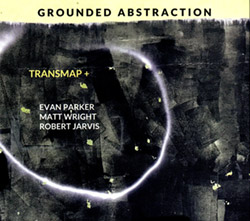
A 2022 concert of acoustic and electroacoustic interaction at The Jazz Centre UK from the Trans Map duo of Evan Parker on soprano saxophone and Matthew Wright on laptop processing, the "+" in Transmap+ being trombonist Robert Jarvis, a versatile collaborator since London Improvisers Orchestra and here a 3rd voice expanding their spectacular open collective free improv.
Out of Stock.
Quantity in Basket: None
Log In to use our Wish List
Shipping Weight: 3.00 units
EU & UK Customers:
Discogs.com can handle your VAT payments
So please order through Discogs
Sample The Album:
Evan Parker-soprano saxophone
Matthew Wright-laptop
Robert Jarvis-trombone
Click an artist name above to see in-stock items for that artist.
Liner notes by Evan Parker
Label: FMR
Catalog ID: FMR 647
Squidco Product Code: 32492
Format: CD
Condition: New
Released: 2022
Country: UK
Packaging: Digipack - 3 panel
Recorded at The Jazz Centre, UK, on January 8th, 2022, by Trevor Taylor.
A 2022 concert of acoustic and electroacoustic interaction at The Jazz Centre UK from the Trans Map duo of Evan Parker on soprano saxophone and Matthew Wright on laptop processing, the "+" in Transmap+ from trombonist Robert Jarvis, a versatile collaborator since London Improvisers Orchestra and here a 3rd voice expanding their spectacular open collective free improv.
Liner notes by Evan Parker

The Squid's Ear!
Artist Biographies
• Show Bio for Evan Parker "Evan Parker was born in Bristol in 1944 and began to play the saxophone at the age of 14. Initially he played alto and was an admirer of Paul Desmond; by 1960 he had switched to tenor and soprano, following the example of John Coltrane, a major influence who, he would later say, determined "my choice of everything". In 1962 he went to Birmingham University to study botany but a trip to New York, where he heard the Cecil Taylor trio (with Jimmy Lyons and Sunny Murray), prompted a change of mind. What he heard was "music of a strength and intensity to mark me for life ... l came back with my academic ambitions in tatters and a desperate dream of a life playing that kind of music - 'free jazz' they called it then." Parker stayed in Birmingham for a time, often playing with pianist Howard Riley. In 1966 he moved to London, became a frequent visitor to the Little Theatre Club, centre of the city's emerging free jazz scene, and was soon invited by drummer John Stevens to join the innovative Spontaneous Music Ensemble which was experimenting with new kinds of group improvisation. Parker's first issued recording was SME's 1968 Karyobin, with a line-up of Parker, Stevens, Derek Bailey, Dave Holland and Kenny Wheeler. Parker remained in SME through various fluctuating line-ups - at one point it comprised a duo of Stevens and himself - but the late 1960s also saw him involved in a number of other fruitful associations. He began a long-standing partnership with guitarist Bailey, with whom he formed the Music Improvisation Company and, in 1970, co-founded Incus Records. (Tony Oxley, in whose sextet Parker was then playing, was a third co-founder; Parker left Incus in the mid-1980s.) Another important connection was with the bassist Peter Kowald who introduced Parker to the German free jazz scene. This led to him playing on Peter Brötzmann's 1968 Machine Gun, Manfred Schoof's 1969 European Echoes and, in 1970, joining pianist Alex von Schlippenbach and percussionist Paul Lovens in the former's trio, of which he is still a member: their recordings include Pakistani Pomade, Three Nails Left, Detto Fra Di Noi, Elf Bagatellen and Physics. Parker pursued other European links, too, playing in the Pierre Favre Quartet (with Kowald and Swiss pianist Irene Schweizer) and in the Dutch Instant Composers Pool of Misha Mengelberg and Han Bennink. The different approaches to free jazz he encountered proved both a challenging and a rewarding experience. He later recalled that the German musicians favoured a "robust, energy-based thing, not to do with delicacy or detailed listening but to do with a kind of spirit-raising, a shamanistic intensity. And l had to find a way of surviving in the heat of that atmosphere ... But after a while those contexts became more interchangeable and more people were involved in the interactions, so all kinds of hybrid musics came out, all kinds of combinations of styles." A vital catalyst for these interactions were the large ensembles in which Parker participated in the 1970s: Schlippenbach's Globe Unity Orchestra, Chris McGregor's Brotherhood of Breath, Barry Guy's London Jazz Composers Orchestra (LJCO) and occasional big bands led by Kenny Wheeler. In the late 70s Parker also worked for a time in Wheeler's small group, recording Around Six and, in 1980, he formed his own trio with Guy and LJCO percussionist Paul Lytton (with whom he had already been working in a duo for nearly a decade). This group, together with the Schlippenbach trio, remains one of Parker's top musical priorities: their recordings include Tracks, Atlanta, Imaginary Values, Breaths and Heartbeats, The Redwood Sessions and At the Vortex. In 1980, Parker directed an Improvisers Symposium in Pisa and, in 1981, he organised a special project at London's Actual Festival. By the end of the 1980s he had played in most European countries and had made various tours to the USA, Canada, Australia, New Zealand and Japan. ln 1990, following the death of Chris McGregor, he was instrumental in organising various tributes to the pianist and his fellow Blue Notes; these included two discs by the Dedication Orchestra, Spirits Rejoice and lxesa. Though he has worked extensively in both large and small ensembles, Parker is perhaps best known for his solo soprano saxophone music, a singular body of work that in recent years has centred around his continuing exploration of techniques such as circular breathing, split tonguing, overblowing, multiphonics and cross-pattern fingering. These are technical devices, yet Parker's use of them is, he says, less analytical than intuitive; he has likened performing his solo work to entering a kind of trance-state. The resulting music is certainly hypnotic, an uninterrupted flow of snaky, densely-textured sound that Parker has described as "the illusion of polyphony". Many listeners have indeed found it hard to credit that one man can create such intricate, complex music in real time. Parker's first solo recordings, made in 1974, were reissued on the Saxophone Solos CD in 1995; more recent examples are Conic Sections and Process and Reality, on the latter of which he does, for the first time, experiment with multi-tracking. Heard alone on stage, few would disagree with writer Steve Lake that "There is, still, nothing else in music - jazz or otherwise - that remotely resembles an Evan Parker solo concert." While free improvisation has been Parker's main area of activity over the last three decades, he has also found time for other musical pursuits: he has played in 'popular' contexts with Annette Peacock, Scott Walker and the Charlie Watts big band; he has performed notated pieces by Gavin Bryars, Michael Nyman and Frederic Rzewski; he has written knowledgeably about various ethnic musics in Resonance magazine. A relatively new field of interest for Parker is improvising with live electronics, a dialogue he first documented on the 1990 Hall of Mirrors CD with Walter Prati. Later experiments with electronics in the context of larger ensembles have included the Synergetics - Phonomanie III project at Ullrichsberg in 1993 and concerts by the new EP2 (Evan Parker Electronic Project) in Berlin, Nancy and at the 1995 Stockholm Electronic Music Festival where Parker's regular trio improvised with real-time electronics processed by Prati, Marco Vecchi and Phillip Wachsmann. "Each of the acoustic instrumentalists has an electronic 'shadow' who tracks him and feeds a modified version of his output back to the real-time flow of the music." The late 80s and 90s brought Parker the chance to play with some of his early heroes. He worked with Cecil Taylor in small and large groups, played with Coltrane percussionist Rashied Ali, recorded with Paul Bley: he also played a solo set as support to Ornette Coleman when Skies of America received its UK premiere in 1988. The same period found Parker renewing his acquaintance with American colleagues such as Anthony Braxton, Steve Lacy and George Lewis, with all of whom he had played in the 1970s (often in the context of London's Company festivals). His 1993 duo concert with Braxton moved John Fordham in The Guardian to raptures over "saxophone improvisation of an intensity, virtuosity, drama and balance to tax the memory for comparison". Parker's 50th birthday in 1994 brought celebratory concerts in several cities, including London, New York and Chicago. The London performance, featuring the Parker and Schlippenbach trios, was issued on a highly-acclaimed two-CD set, while participants at the American concerts included various old friends as well as more recent collaborators in Borah Bergman and Joe Lovano. The NYC radio station WKCR marked the occasion by playing five days of Parker recordings. 1994 also saw the publication of the Evan Parker Discography, compiled by ltalian writer Francesco Martinelli, plus chapters on Parker in books on contemporary musics by John Corbett and Graham Lock. Parker's future plans involve exploring further possibilities in electronics and the development of his solo music. They also depend to a large degree on continuity of the trios, of the large ensembles, of his more occasional yet still long-standing associations with that pool of musicians to whose work he remains attracted. This attraction, he explained to Coda's Laurence Svirchev, is attributable to "the personal quality of an individual voice". The players to whom he is drawn "have a language which is coherent, that is, you know who the participants are. At the same time, their language is flexible enough that they can make sense of playing with each other ... l like people who can do that, who have an intensity of purpose." " ^ Hide Bio for Evan Parker • Show Bio for Matthew Wright "Matthew Wright B. 1977, Norwich, UK Matt Wright works internationally as a composer, performer, sound designer and producer. His compositional output stretches from scores for early music ensembles and contemporary chamber groups to digital improvisation, experimental turntablism and website installations, alongside collaborations with dance, theatre and film. As a performer he works with turntables, laptops and surround sound installations to create post-DJ, multichannel music embracing hip hop, avant and improvised traditions. His lives in Canterbury, where he runs the annual WINTERSOUND experimental music and sound festival. He works closely with Evan Parker in their live/studio project Trance Map and Trance Map+ (featuring guests such as Toma Gouband, Peter Evans, Spring Heel Jack and Mark Nauseef); with Ensemble Klang in The Hague (including the albums Music at the Edge of Collapse and Cold Highlife); with the Brussels-based Bl!ndman ensemble and composer Eric Sleichim (including NETWORK, directed by Ivo van Hove and starring Breaking Bad actor Bryan Cranston, as well as Beyond/Behind with soprano Claron McFadden); with Champ D'Action in Antwerp (including the LABO international arts residency); with The Six Tones based in Stockholm and Hanoi; with Ensemble Offspring in Sydney; with CEPROMusic in Mexico City; as sound designer for Elaine Mitchener and as guest with the Alexander Hawkins Ensemble (on the record 'Unit[e]'); as well as duo projects with Irreversible Entanglements saxophonist Keir Neuringer (Speak Cities), The Chap's Panos Ghikas (Unrealtime Combat), violinist/composer Roger Redgate (Single Combat) and saxophonist/composer Robert Stillman (The Wheel, BBC Radio 3's Exposure Ramsgate). His work has been presented at the Sydney Opera House, Le Poisson Rouge (New York), the Muziekcentrum an 't IJ (Amsterdam), The Kim Ma Theatre (Vietnam) and Abbey Road Studios, Tate Britain and Tate Modern. He has been commissioned by organisations such as The Huddersfield Contemporary Music Festival (hcmf//) and the MATA Festival (New York), his work being regularly broadcast on radio across Europe, but also including a two-hour focus on his work on the ABC Network in Australia. Reviews of his projects have appeared in the New York Times, the Sydney Morning Herald, Vietnam Today and the Financial Times. He remixed Robert Wyatt's Cuckooland album into a concert-length collaboration with Elaine Mitchener, Tony Hymas and the Brodsky Quartet, and Totem for Den Haag was selected to represent UK new music in Mexico City in 2015. His work is presented on Relative Pitch, Psi, Migro, Ensemble Klang, Extra Normal and Intakt.He studied Composition with Richard Steinitz and with Christopher Fox at the University of Huddersfield; with Steve Martland in London, Louis Andriessen, Martijn Padding and Richard Ayres at The Royal Conservatory of the Netherlands and with Roger Redgate at Goldsmiths College, London. Matt is a Professor of Composition and Sonic Art at Canterbury Christ Church University, regularly gives guest lectures across the UK and Europe and is an Associate Researcher at the Orpheus Institute, Ghent." ^ Hide Bio for Matthew Wright • Show Bio for Robert Jarvis "Trombonist, composer, and sound installation artist, Robert Jarvis is based in the South East of England and enjoys being involved in a wide range of music making, both as creator and performer. For the first seven years of his career he worked alongside fellow Kent-based musician Peter Cook on a series of music-based community projects before concentrating on his own education projects, collaborating along the way with many different artists, and eventually receiving The Performing Right Society's Composer-In-Education Award. From the mid-nineties he began to concentrate more on composition, often making use of found-sounds and integrating these into his score; however, it was not until 2003 that he had the idea of a more installation-type approach to his music making. These pieces were quite successful and led to two separate British Composer Awards as well as an invitation by The British Council to create a new work for the then new Chongqing Planning Exhibition Gallery, in China. In 2007 he was awarded a residency at The Hannah Peschar Sculpture Garden, in Surrey, and this in turn led to a series of other pieces designed for site-specific outdoor spaces, as well as a new body of work drawing from scientific data collected from natural processes, leading to recognition through The PRS New Music Award. Today, Robert continues to explore new methods for musical creation, attempting to build on his reputation for compositions that entice new appreciations of the sonic landscape and encourage a rethinking of our relationship with our surroundings. His most recent accomplishment is his astronomically inspired aroundNorth sound installation, which is now permanently installed in the grounds of Armagh Observatory. When not creating or installing, Robert can be regularly heard playing with many different musicians, across different genres, including folk, improv, contemporary, and popular music, as well performing occasionally as a soloist." ^ Hide Bio for Robert Jarvis
7/7/2025
Have a better biography or biography source? Please Contact Us so that we can update this biography.
7/7/2025
Have a better biography or biography source? Please Contact Us so that we can update this biography.
7/7/2025
Have a better biography or biography source? Please Contact Us so that we can update this biography.
Track Listing:
1. Grounded 33:30
2. Abstraction 34:52
Improvised Music
Jazz
Free Improvisation
Electro-Acoustic
Electro-Acoustic Improv
Collective & Free Improvsation
Trio Recordings
Parker, Evan
London & UK Improv & Related Scenes
Staff Picks & Recommended Items
New in Improvised Music
Search for other titles on the label:
FMR.

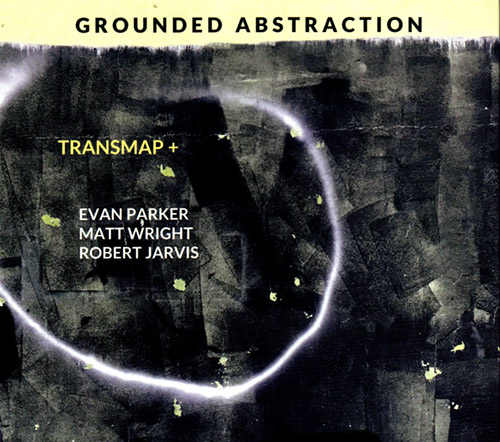


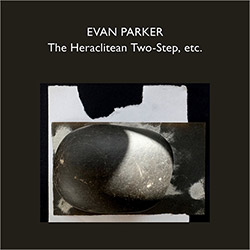

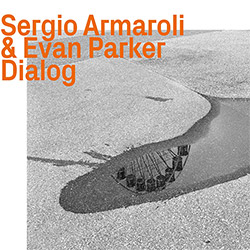

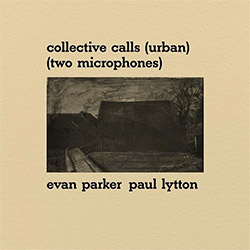

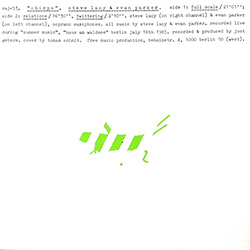

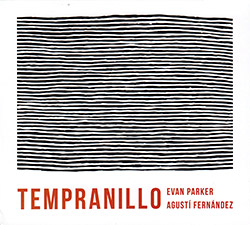
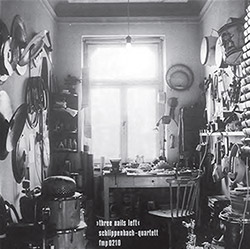
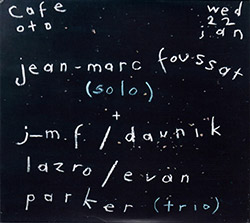


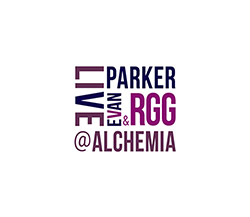





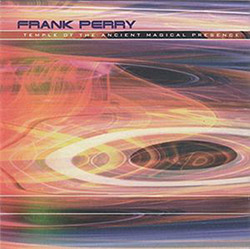

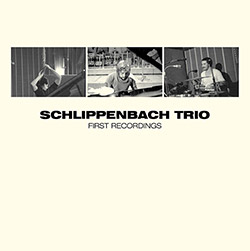








![+DOG+: The Light Of Our Lives [2 CDs]](https://www.teuthida.com/productImages/misc4/36009.jpg)












![Deupree, Jerome / Sylvie Courvoisier / Lester St. Louis / Joe Morris: Canyon [2 CDs]](https://www.teuthida.com/productImages/misc4/36404.jpg)


![Eternities: Rides Again [CASSETTE]](https://www.teuthida.com/productImages/misc4/36247.jpg)

![Lopez, Francisco: Untitled (2021-2022) [2 CDs]](https://www.teuthida.com/productImages/misc4/36438.jpg)




![Eventless Plot | Haarvol: The Subliminal Paths [CASSETTE + DOWNLOAD]](https://www.teuthida.com/productImages/misc4/36232.jpg)







![Eventless Plot | Francesco Covarino: Methexis [CASSETTE + DOWNLOAD]](https://www.teuthida.com/productImages/misc4/36231.jpg)



![Das B (Mazen Kerbaj / Mike Majkowski / Magda Mayas / Tony Buck): Love [VINYL]](https://www.teuthida.com/productImages/misc4/36329.jpg)



![Hemphill Stringtet, The: Plays the Music of Julius Hemphill [VINYL]](https://www.teuthida.com/productImages/misc4/36409.jpg)









![Money : Money 2 [2 CDs]](https://www.teuthida.com/productImages/misc4/35894.jpg)




![Klinga, Erik: Elusive Shimmer [VINYL]](https://www.teuthida.com/productImages/misc4/36258.jpg)
![CHANGES TO blind (Phil Zampino): Volume 9 - I Wave on a Fine Vile Mist [CD + DOWNLOAD]](https://www.teuthida.com/productImages/misc4/36061.jpg)

![Wallmart / Rubbish: Asset Protection [split CD]](https://www.teuthida.com/productImages/misc4/35900.jpg)


![+Dog+: The Family Music Book Vol. 5 [2 CDs]](https://www.teuthida.com/productImages/misc4/35897.jpg)
![Kuvveti, Deli : Kuslar Soyledi [CASSETTE w/ DOWNLOAD]](https://www.teuthida.com/productImages/misc4/36107.jpg)

![Nakayama, Tetsuya: Edo Wan [CASSETTE w/ DOWNLOAD]](https://www.teuthida.com/productImages/misc4/36105.jpg)

![Brown, Dan / Dan Reynolds: Live At The Grange Hall [unauthorized][CASSETTE]](https://www.teuthida.com/productImages/misc4/36245.jpg)








![Palestine, Charlemagne / Seppe Gebruers: Beyondddddd The Notessssss [VINYL]](https://www.teuthida.com/productImages/misc4/36206.jpg)
![Palestine, Charlemagne / Seppe Gebruers: Beyondddddd The Notessssss [NEON GREEN VINYL]](https://www.teuthida.com/productImages/misc4/36207.jpg)

![Laubrock, Ingrid: Purposing The Air [2 CDs]](https://www.teuthida.com/productImages/misc4/35639.jpg)

![Yoko, Ono / The Great Learning Orchestra: Selected Recordings From Grapefruit [2 CDs]](https://www.teuthida.com/productImages/misc4/35841.jpg)









![Zorn, John / JACK Quartet: The Complete String Quartets [2 CDs]](https://www.teuthida.com/productImages/misc4/35609.jpg)

![Lonsdale, Eden: Dawnings [2 CDs]](https://www.teuthida.com/productImages/misc4/35480.jpg)



![Sorry For Laughing (G. Whitlow / M. Bates / Dave-Id / E. Ka-Spel): Rain Flowers [2 CDS]](https://www.teuthida.com/productImages/misc4/35985.jpg)

![Rolando, Tommaso / Andy Moor : Biscotti [CASSETTE w/ DOWNLOADS]](https://www.teuthida.com/productImages/misc4/36106.jpg)


![Electric Bird Noise / Derek Roddy: 8-10-22 [CD EP]](https://www.teuthida.com/productImages/misc4/35970.jpg)








![Elephant9 : Mythical River [VINYL]](https://www.teuthida.com/productImages/misc4/34624.jpg)



![Elephant9 with Terje Rypdal: Catching Fire [VINYL 2 LPs]](https://www.teuthida.com/productImages/misc4/35355.jpg)
![Deerlady (Obomsawin, Mali / Magdalena Abrego): Greatest Hits [VINYL]](https://www.teuthida.com/productImages/misc4/34876.jpg)







![Surplus 1980: Illusion of Consistency [CD]](https://www.teuthida.com/productImages/misc4/35069.jpg)
![Staiano, Moe: Away Towards the Light [VINYL + DOWNLOAD]](https://www.teuthida.com/productImages/misc4/35037.jpg)
![Coley, Byron: Dating Tips for Touring Bands [VINYL]](https://www.teuthida.com/productImages/misc4/17906.jpg)

![Lost Kisses: My Life is Sad & Funny [DVD]](https://www.teuthida.com/productImages/misc4/lostKissesDVD.jpg)